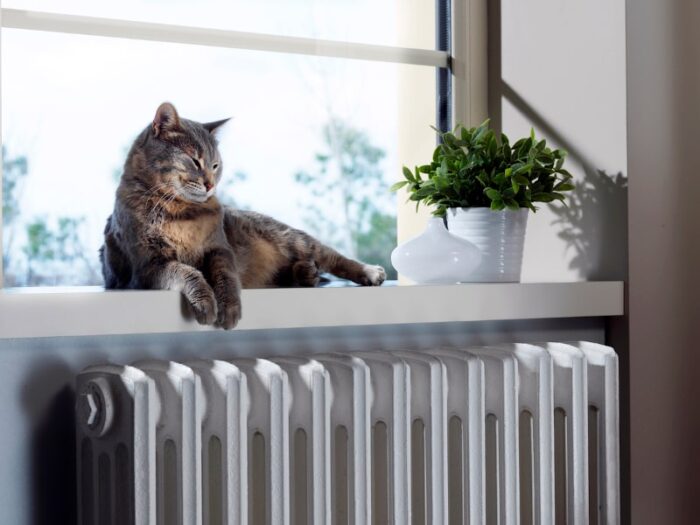Having a couple of furry friends in the home can have a huge impact on your home’s indoor air quality – the air that you’re breathing. These loveable companions are always releasing hair and dander that clogs up your air filters and worsens allergies. Here are a few ways pets can decrease your indoor air quality in Beaverdam, VA.
Release Hair and Dander
Animal companions like cats and dogs frequently release hair or fur when they rub or roll on your rugs, couches, and drapery. This hair and dander can float around your indoor air landing on surfaces inside your home and eventually work its way into your ductwork. If you let your pet outside, they’ll also track in dirt, allergens, pollen, and more.
Block Duct Airflow
The more airborne hair and particulates in your home, the faster your HVAC filters will fill up. This will allow more dust into your ductwork that will then be distributed throughout your home. Poor air quality can have a terrible impact on your HVAC system’s efficiency, making it necessary to call more frequently for maintenance and repair services.
Worsen Allergies
With more dander, pollen, and contaminants in the air, your family’s allergies may feel unbearable. You’ll likely struggle to breathe, sleep or relax in the home. The symptoms are often much worse for children and for those who suffer from more extreme allergies.
Tips for Protecting IAQ
Fortunately, you can minimize the impact your pets have on your indoor air quality by frequently cleaning and vacuuming. Be sure to brush and bathe your animals at least once a week to stop any hair from spreading. You should also consider investing in better air filters or air quality solutions like air scrubbers or purifiers.
Your pets impact your home’s breathing air by continually releasing fur, dander, pollen and other pollutants. Be sure to check your HVAC filters every 30 days and change them as needed – at least every 90 days. Call Ultimate Air, Inc. to schedule your indoor air quality service appointment in Beaverdam, VA.
Image provided by iStock

